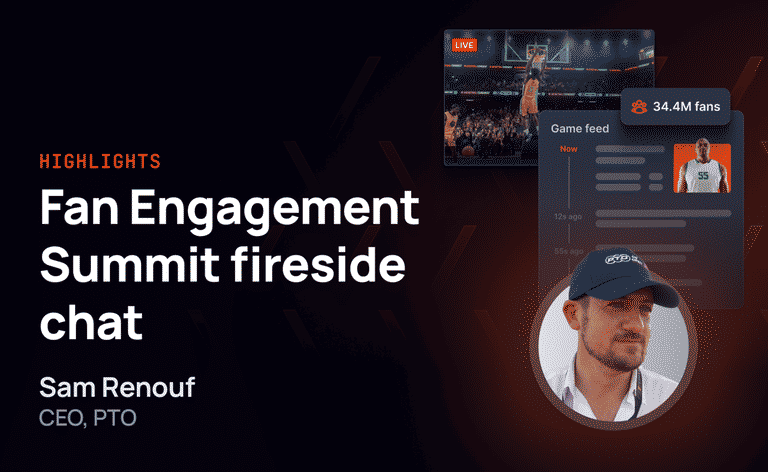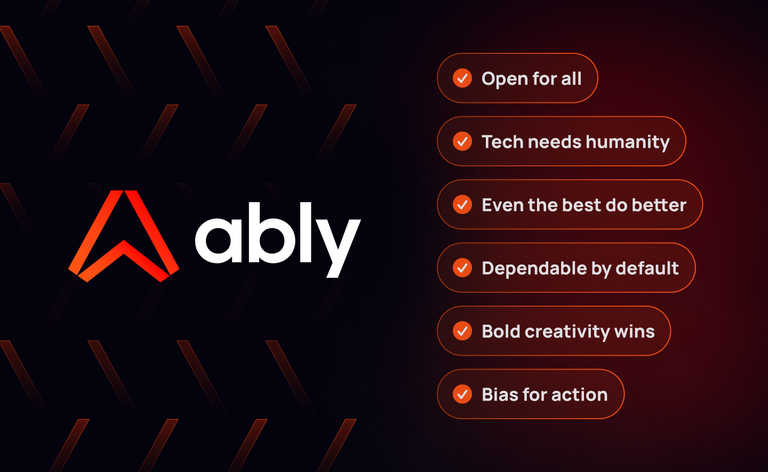In the ever-evolving world of sports and entertainment, fan engagement has emerged as a critical factor in driving retention and long-term success. At the Ably Realtime Fan Engagement Summit in New York City, industry experts shared valuable insights into the relationship between fan engagement and retention, emphasizing the importance of creating compelling digital experiences and fostering genuine connections.
In the following video and post Carlo De Marchis ("A guy with a scarf") shares a series of key takeaways from experts - including Xalt, Genius Sports, and more ...
One of the key takeaways from the summit was the need to move beyond the traditional focus on reach and embrace engagement as a fundamental strategy.
Catherine Mullen, co-founder and CEO of Xalt, noted:
"For about a decade in the industry, all I heard was reach, reach, reach. And now I think brands, rights holders, league streaming platforms are understanding the importance of engagement. Driving engagement is critical to drive retention and reducing churn, which is an issue that we all face in the industry, particularly with live sports."
Michael Patel, Chief Technology Officer at Genius Sports, emphasized the importance of exploring new experiences with fans and understanding how they affect their behavior. He compared the process to the "measure, learn, and optimize" lifecycle in advertising, stating: "It seems like an intuitive thing that engaged fans will stay longer, will be more loyal to brands, more loyal to leads themselves, and there's a flywheel of creating the content that they want and then coming back for more of that content."
Digital platforms have revolutionized the way sports organizations connect with their fans, offering unprecedented opportunities for two-way interactions and personalized experiences.
Ari Evans, founder and CEO of Maestro, emphasized the importance of utilizing fan engagement features to create stickiness and measure impact, saying: "If you want to make them sticky, you need to have different types of fan engagement features and then be able to measure, you know, what impact does that have for each different types of cohort?"
Creating compelling content is essential for keeping fans coming back for more. This can include exclusive behind-the-scenes footage, in-depth player interviews, and must-see game highlights. However, successful fan engagement goes beyond simply pushing content to fans. It's about enabling two-way interactions through social media, forums, and even gamification.
Matthew O'Riordan, CEO and founder of Ably, noted:
"Fans want to experience things with their friends, with their other fans, with people they share things with. And if you're driving delivering platforms and experiences that fans can engage with other fans in more meaningful ways, they come back because they want to experience that again."
Rewarding fans for their engagement is another crucial aspect of retention. Vishal Parikh, Chief Product Officer at LiveLike, emphasized the importance of providing a positive, interactive, and engaging experience, stating: "It's also important to reward users for their engagement on your platform. They're spending their valuable time from their day on your ecosystem, whether it's on digital platforms or in your venue. And so it's important to consider rewards that increases retention, LTV monetization opportunities, et cetera."
Simon Gershey, CTO at Simplebet, emphasized the critical role of fan engagement in building an ecosystem around sports and interests in sports. He noted that SimpleBet has focused on this challenge for years: "Fan engagement's obviously a very critical part of building an ecosystem around sports, around interests in sports. Retaining fans or building a fan base becomes super critical for anyone."
Gershey mentioned that SimpleBet concentrates on creating in-play gaming experiences that can be delivered through betting operators or social media channels to help build and grow a fan base, which is essential for any retention strategy.
Advanced data analytics also play a significant role in personalizing the fan experience.
By understanding fan behaviors and preferences, sports brands can tailor content and offers to individual fans, making them feel valued and appreciated for their loyalty.
Jessica Anguiano, Customer Success Director from Cleeng, highlighted the importance of personalization, saying:
"It's important to understand what they're interested in and give them and create that communication and personalization in everything that they touch."
The Ably Realtime Fan Engagement Summit underscored the vital role of fan engagement in driving retention and long-term success in the sports and entertainment industry. By creating compelling digital experiences, fostering genuine connections, rewarding loyalty, and leveraging data analytics, sports brands can transform casual followers into dedicated, lifelong advocates. As the industry continues to evolve, those who prioritize fan engagement and adapt to the changing landscape will be best positioned to thrive in the years to come.




